Normal Punctuation Worksheets for Ages 4-7
8 filtered results
-
From - To
Enhance your child's punctuation skills with our Normal Punctuation Worksheets, designed for ages 4-7. These engaging, printable activities help children understand and use basic punctuation marks such as periods, question marks, and exclamation points. Each worksheet focuses on fun and interactive exercises, ensuring that learning punctuation is both enjoyable and educational. Perfect for early grade students, these worksheets support language development and writing skills, all while keeping young learners motivated. Encourage your child's literacy journey with carefully crafted activities that make punctuation easy to grasp. Visit Kids Academy to explore our full collection and Download Now!
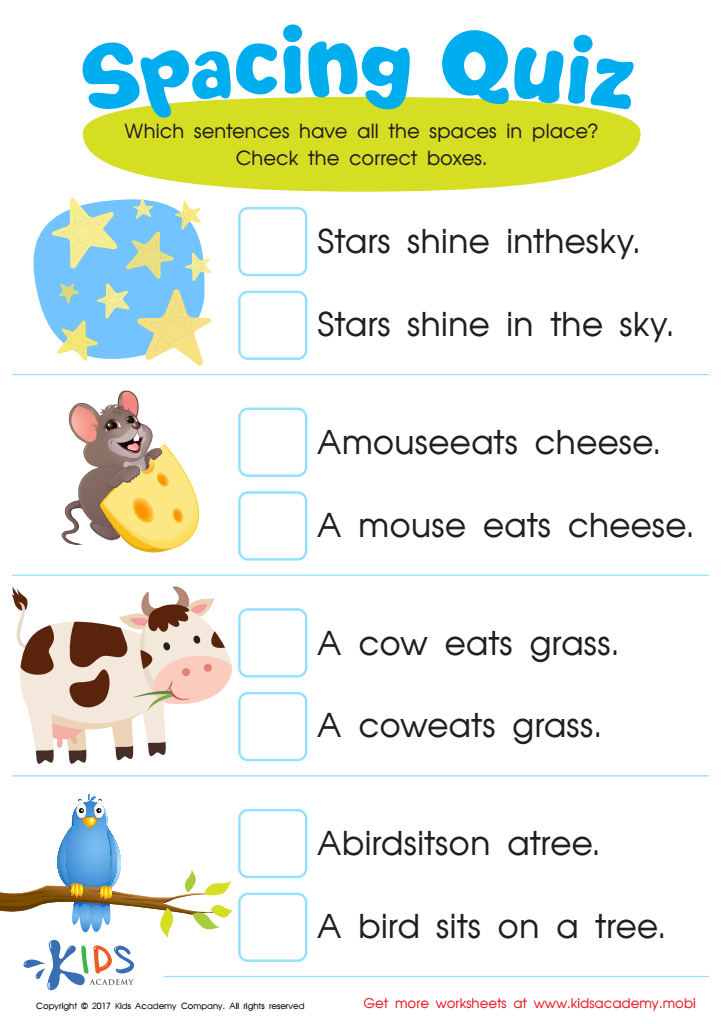

Spacing Quiz Worksheet
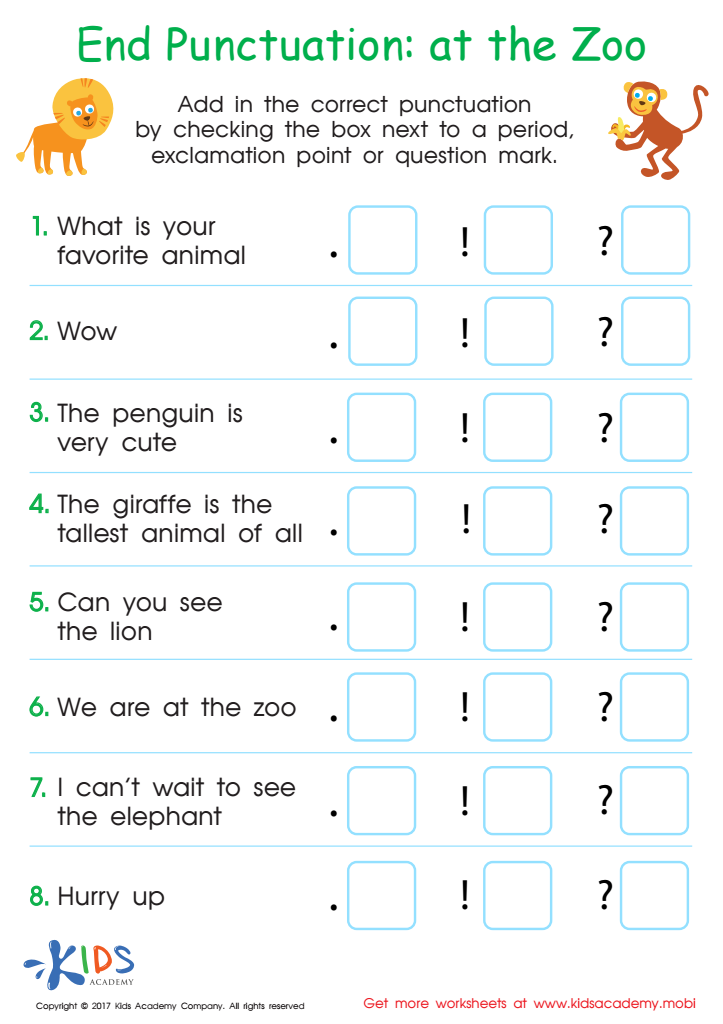

End Punctuation: At the Zoo Worksheet
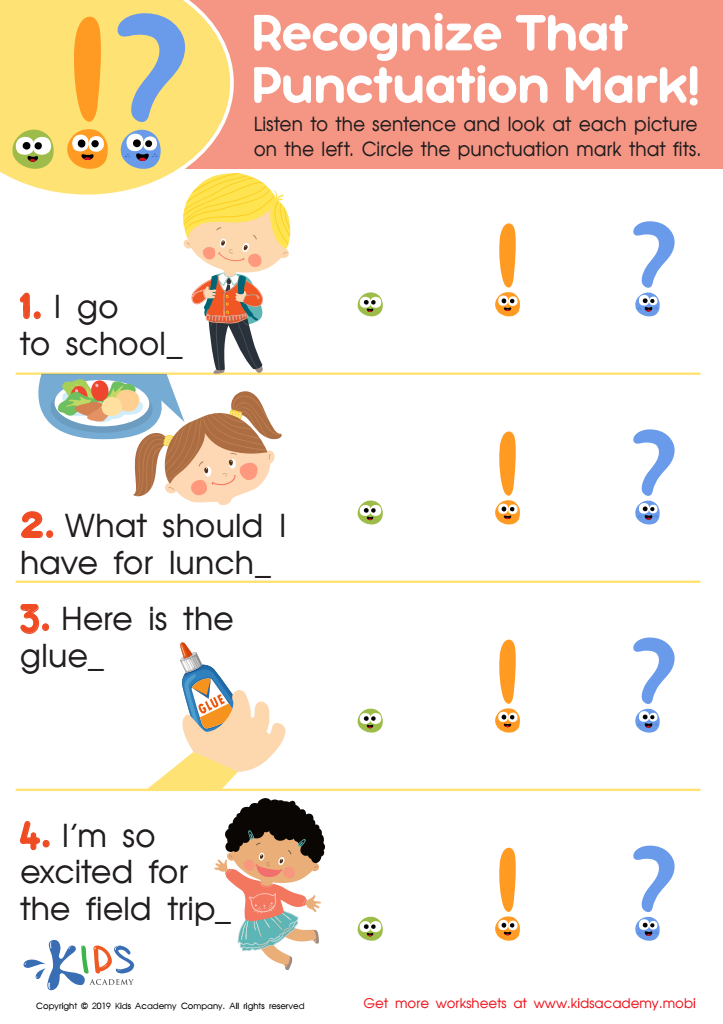

Recognize Punctuation Marks Worksheet
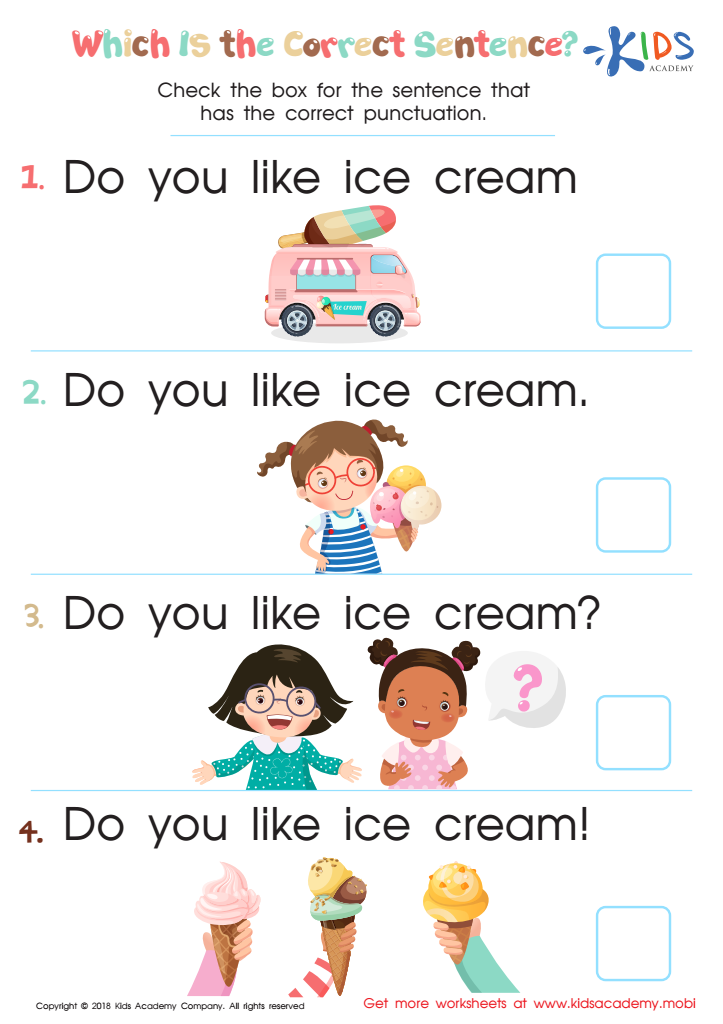

Which is the Correct Sentence? Worksheet
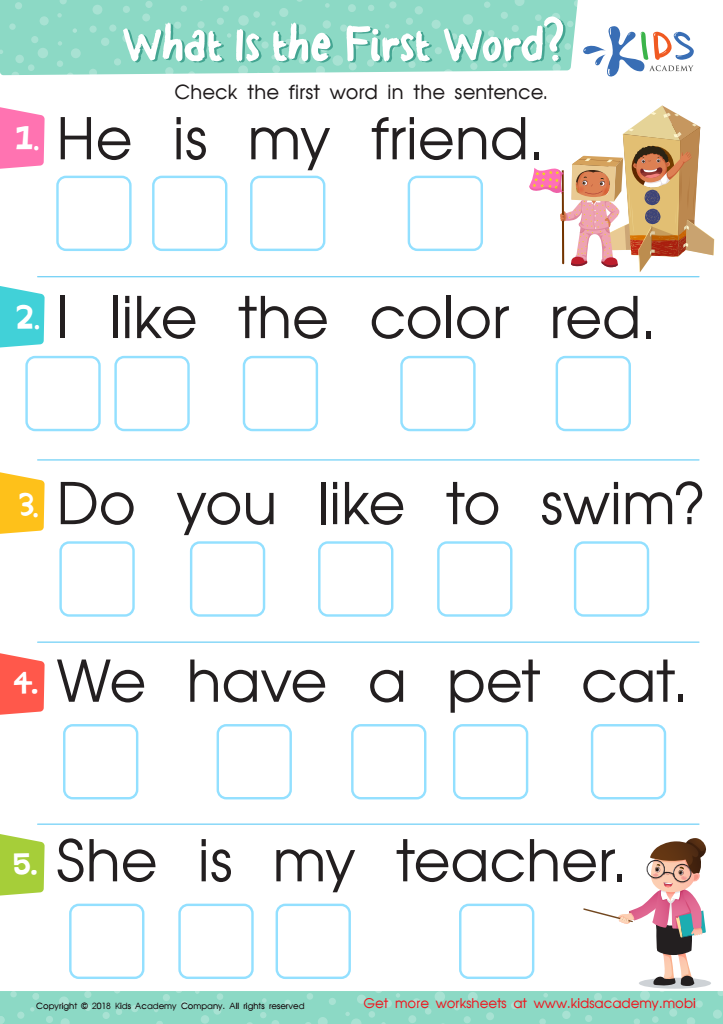

What is the First Word? Worksheet
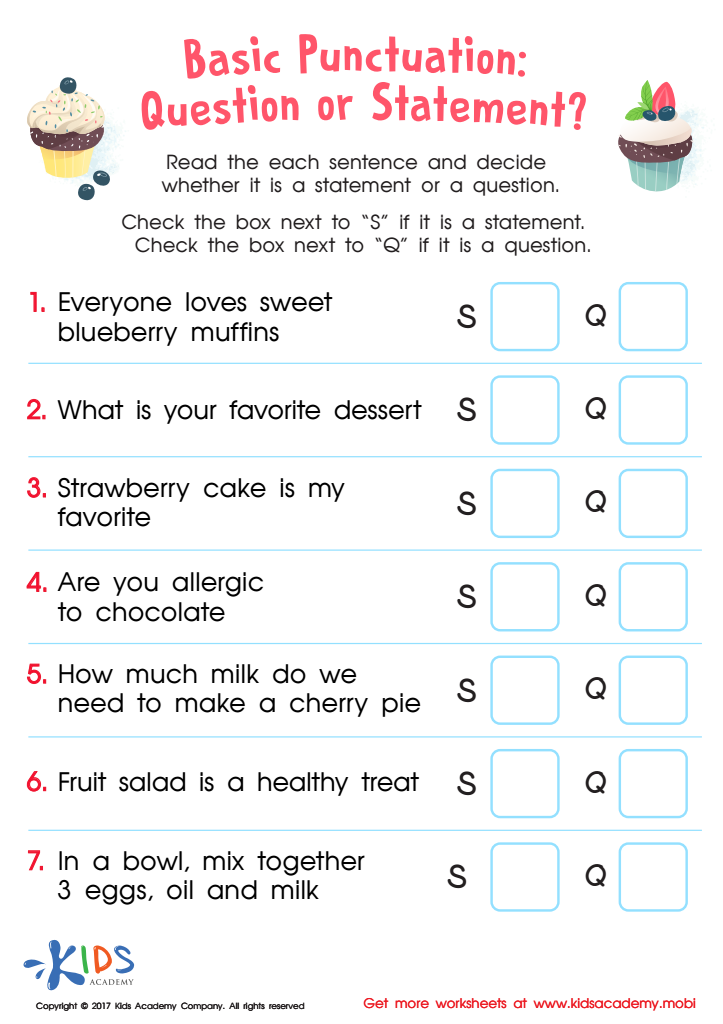

Basic Punctuation: Question or Statement Printable
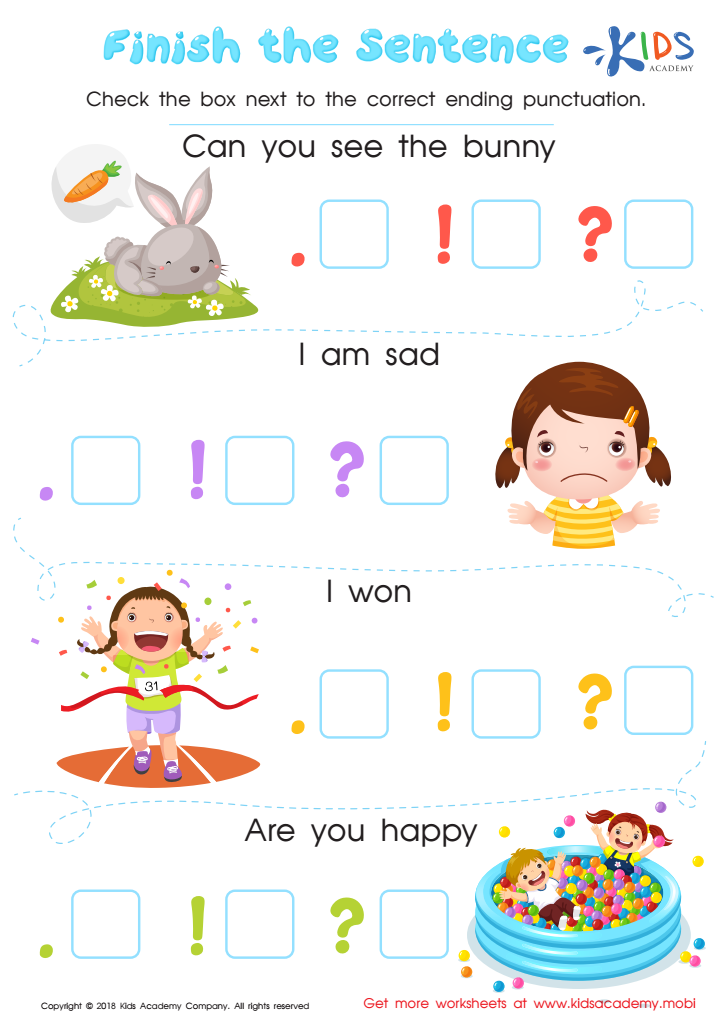

Finish the Sentence Worksheet
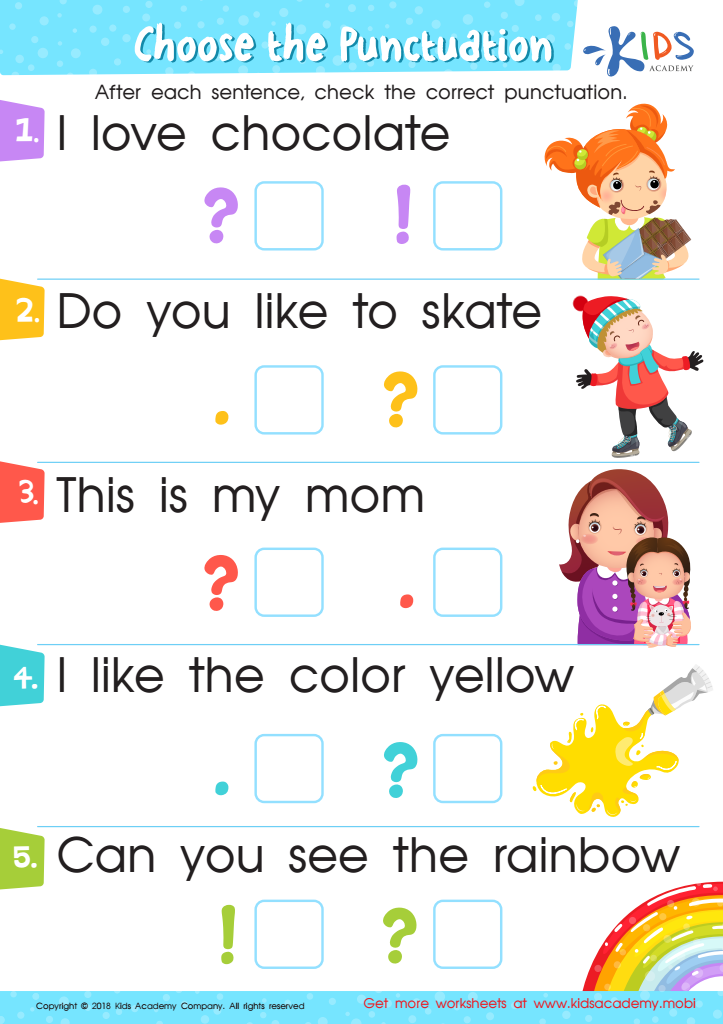

Choose the Punctuation: Assessment Worksheet
Normal punctuation is crucial for young learners aged 4-7 as it forms the foundation of effective communication and literacy skills. At this formative stage, children rapidly develop their reading and writing abilities. Proper punctuation such as periods, commas, question marks, and exclamation points help them understand how sentences are structured and conveyed with meaning.
Parents and teachers who emphasize correct punctuation facilitate children's comprehension when reading. For example, a well-placed period signals a pause and the end of a thought, which helps young readers to better understand the story or information presented. This builds reading fluency and comprehension, key components in academic success.
Moreover, teaching correct punctuation fosters clearer writing from an early age. When children understand how commas separate items in a list or how question marks denote inquiry, they can express their ideas and thoughts more coherently. This clarity boosts their confidence in writing and sets a solid foundation for future academic tasks.
Ultimately, normal punctuation enriches a child’s ability to convey and interpret messages accurately, leading to better learning outcomes and enhanced social communication skills. By prioritizing punctuation, parents and teachers equip children with essential tools for both academic success and effective communication in all areas of life.
 Assign to My Students
Assign to My Students














